RENDEZ-VOUS
B à Z / B tot Z
Straight from the dark corners of the collection: hilarious B-movies, blood-curdling thrillers, gialli, slashers and other exploitation films... A not-to-be-missed moment in the history of alternative cinema, every last Friday of the month, presented in both languages. And a ticket that counts double: two films on the same theme for the price of a single ticket.
SEPTEMBER: NOCTURNAL OBSSESSION
Maidens of Fetish Street is the only film directed by Saul Resnick, who also worked on numerous bizarre American exploitation films in the 1960s. This gem of sexploitation blends mondo (sensationalist faux-documentary) with an experimental approach (Resnick was primarily a cinematographer) and, of course, includes the inevitable striptease and erotic scenes. It represents a pinnacle of sexploitation where the nocturnal city—Los Angeles in this case—becomes a labyrinth of sin and depravity. The ‘amoral’ characters indulge their fantasies and obsessions under the watchful, voyeuristic, and moralizing eye of the camera. Like many sexploitation and mondo films, viewers are morally reassured by a narrator's voice-over, creating a certain distance from the debauched scenes that can then be watched more willingly.
In Bilbao, the voice-over belongs to the protagonist, offering insight into his mindset. This film contains elements similar to the one above but with a Latin approach far removed from American puritanism. We follow the protagonist’s obsession with the stripper Bilbao and his nocturnal wanderings, immersing us in a disturbing gray area. Much like in Caniche or Anguish, Bigas Luna presents a traumatic and fascinating experience reminiscent of the giallo’s morbid and erotic tendencies.
OCTOBER: YUPPIE NIGHTMARES FROM THE 1980s
The term “yuppies”, or Young Urban Professionals, is inextricably linked to 1980s America, representing well-educated young people with high-paying jobs in the era of rampant Reaganomics. Their quest for status-enhancing possessions led to a wave of gentrification in major cities. Portrayed in thrillers like Wall Street and light comedies such as The Secret of My Success, there’s also a series of films where these affluent, self-satisfied white-collar workers face dire consequences for their arrogance, ending up in disaster-prone parts of town or in troublesome company. This so-called yuppie nightmare comedy includes John Landis’ Into the Night, Susan Seidelman’s Desperately Seeking Susan, Adrian Lyne’s Fatal Attraction, and the double bill of Martin Scorsese’s After Hours and Jonathan Demme’s Something Wild. The yuppie nightmare film cycle blends elements from two seemingly contrasting genres: screwball comedy and film noir. Both genres are known for their complex, intricate plots, and in both Scorsese’s and Demme’s films, the male protagonists are pulled into chaotic, illogical situations by transgressive female figures (and the promise of sex)—the screwball heroine and the femme fatale. This effectively undermines the confident, patriarchal façade of 1980s America.
NOVEMBER: DRACULA MADE IN HAMMER
In 1958, Dracula was released, becoming one of Hammer Film Productions’ most iconic films and turning Christopher Lee into a horror genre star. The film successfully reignited interest in classic horror films reminiscent of Universal’s 1930s output. It managed to replace the immortal Bela Lugosi with a new, sultry, and impactful icon, shining in the color film that brought the blood-red hues to life. Terence Fisher, who had revived the Frankenstein myth with The Curse of Frankenstein the previous year, became the star director of this golden era for the renowned British studio. The film’s success led the studio to create a nine-film franchise over 16 years.
Terence Fisher stepped away after the third film, while Christopher Lee distanced himself from the character he wanted to leave behind but was still tied to. He would only be freed from this role much later when Saruman in The Lord of the Rings finally overshadowed his Dracula. Despite Dracula’s commercial success for Hammer, the character struggled to endure the test of time. Attempts to update the character include the overly kitschy Dracula A.D. 1972 and the final film in the series, The Legend of the 7 Golden Vampires, co-produced with the Shaw Brothers and tapping into the martial arts film craze.
In collaboration with

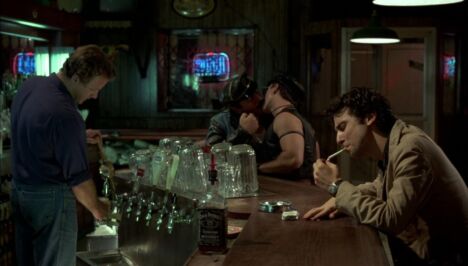
Friday 29.11 19:00 LEDOUX Cart
B à Z / B tot Z
Yuppie Nightmares from the 1980s : B - Z November
After Hours
- Martin Scorsese, USA 1985 ⁄ Griffin Dunne, Rosanna Arquette, John Heard, Linda Fiorentino ⁄ color ⁄ 97' ⁄ ST - OND: FR - NL
+ INTRO
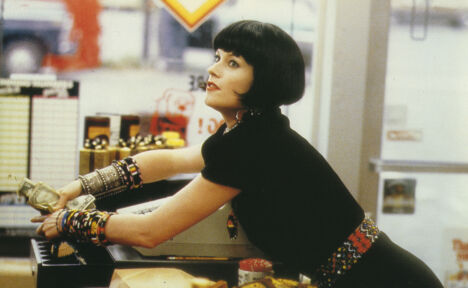
Friday 29.11 21:00 LEDOUX Cart
B à Z / B tot Z
Yuppie Nightmares from the 1980s : B - Z November
Dangereuse sous tous rapports
Something Wild
- Jonathan Demme, USA 1986 ⁄ Jeff Daniels, Melanie Griffith, Ray Liotta ⁄ color ⁄ 113' ⁄ ST - OND: FR - NL
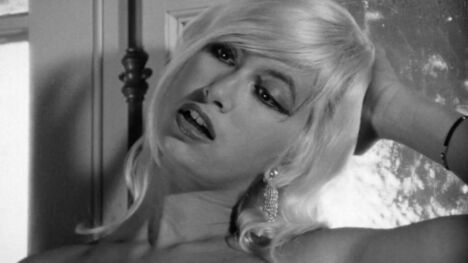
Friday 27.09 19:00 LEDOUX Cart
B à Z / B tot Z
Nocturnal Obssessions : B - Z September
Les Filles de rues
Maidens of Fetish Street
- Saul Resnick, USA 1966 ⁄ Ken McCormick, Toni Lee Oliver, Althea Currier ⁄ B&W ⁄ 64' ⁄ V: EN ⁄ ST - OND: —
+ INTRO
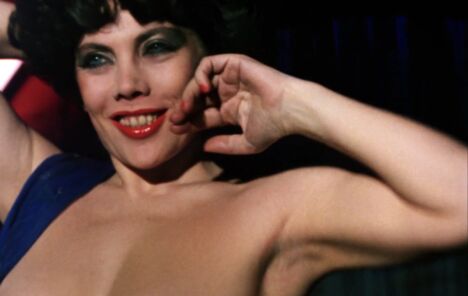
Friday 27.09 21:00 LEDOUX Cart
B à Z / B tot Z
Nocturnal Obssessions : B - Z September
Bilbao
- José Juan Bigas Luna, Spain 1978 ⁄ Àngel Jové, María Martín, Isabel Pisano ⁄ color ⁄ 97' ⁄ ST - OND: FR
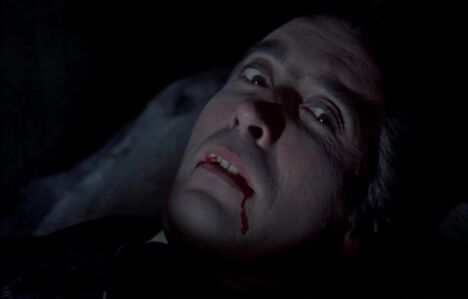
Friday 25.10 19:00 LEDOUX Cart
B à Z / B tot Z
Dracula Made in Hammer : B - Z October
Le Cauchemar de Dracula
Horror of Dracula
Dracula
- Terence Fisher, UK 1958 ⁄ Peter Cushing, Christopher Lee, Michael Gough ⁄ color ⁄ 79' ⁄ ST - OND: FR - NL
+ INTRO
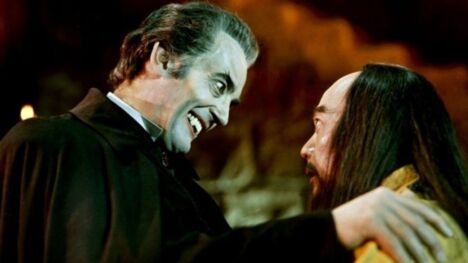
Friday 25.10 21:00 LEDOUX Cart
B à Z / B tot Z
Dracula Made in Hammer : B - Z October
La Légende des sept vampires d’or
The Legend Of The 7 Golden Vampires
- Roy Ward Baker, UK, Hong Kong 1974 ⁄ Peter Cushing, Julie Ege, David Chiang ⁄ color ⁄ 87' ⁄ ST - OND: FR - NL